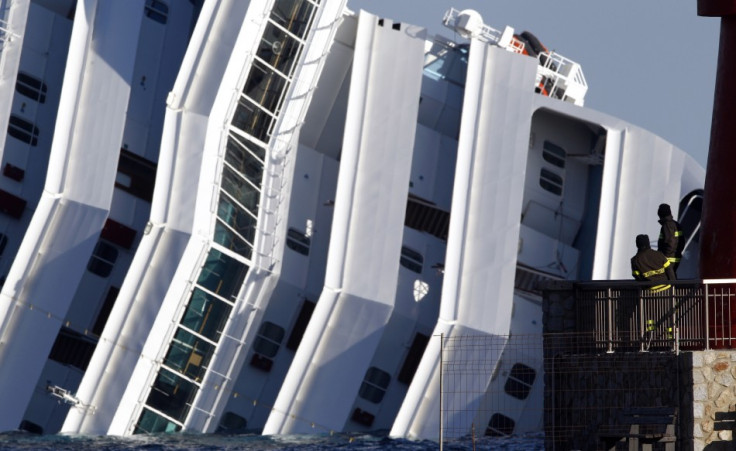Cruise Ship Sinking: Conspiracy Theories Behind Costa Concordia Tragedy

The uncanny pictures of the stricken liner Costa Concordia half-sank in the water have immediately fuelled the imagination of conspiracy theorists and behind-the-scene experts.
The ill-fated ship's incident bears many similarities with the Titanic disaster which happened a hundred years ago. Both met a similar end - the British liner sank after hitting a big iceberg and Concordia is believed to have hit a large rock. Titanic soon became a striking metaphor, a romantic but unfortunate episode and ultimately a successful movie. Concordia's tragedy, on the other hand, has been described as a human error, a bravado move by a over-confident captain eager to show off his abilities.
But what if it was not only a daring act, a deliberate hubris of one, but the eerie result of a collective effort?
As with other catastrophes, conspiracy-diggers have found sinister coincidences linking masonry with symbolic names, numbers and dates of the Concordia tragedy.
Titanic Link: The Titanic sank the night between April 14 and 15, 1912. The cruise ship Costa Concordia struck the rock and began to sink off the coast of Giglio Island the night between January 13 and 14, 2012, which is exactly 99 years and 9 months later. If you turn over the figure, the result is 666, the number of the beast, the devil, adopted also by the masons.
Friday 13th: As many commentators noticed, January 13 was Friday. Many reports suggest that Captain Schettino attempted another reckless move December 17, which is another "cursed "date, with the same liner. On that occasion, he decided to sail from Marsiglia in rough weather conditions, sparking furious reactions among the crew. Friday 13 has been considered an unlucky day at least since the 14<sup>th century.
The Masons: The ship ran aground off the Tuscan island of Giglio, the Italian name for the lily flower. Highly-symbolic since the medieval age, the lily flower is one of the most recurrent symbols of masonry, along with the red rose.
Moreover, the name of the ship, Concordia or harmony, was also the name of Florence's first masonic lodge. Needless to say, the lily flower is the symbol of Florence.
© Copyright IBTimes 2025. All rights reserved.






















